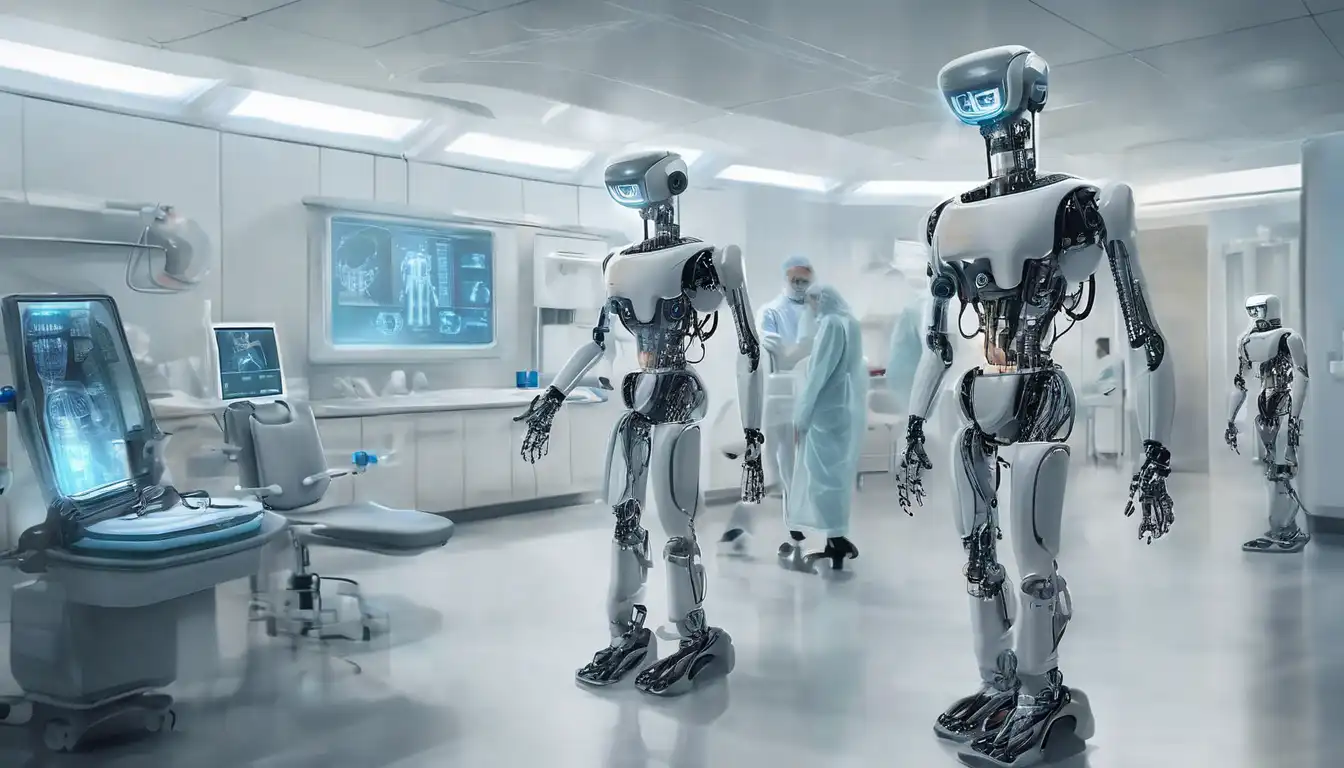The Next Era of Robotics in Healthcare
The integration of robotics into healthcare is transforming patient care, surgical procedures, and rehabilitation processes. This technological evolution is not just enhancing efficiency but also improving the accuracy and outcomes of medical treatments. As we look towards the future, the potential for robotics in healthcare seems boundless, promising a new era of medical innovation and patient care.
Transforming Surgical Procedures
Robotic surgery has become a cornerstone of modern medical practices, offering precision that surpasses human capabilities. With systems like the Da Vinci Surgical System, surgeons can perform complex procedures with minimal invasiveness, reducing recovery times and improving patient outcomes. The future promises even more advanced systems, capable of performing surgeries with unprecedented precision and autonomy.
Enhancing Patient Rehabilitation
Robotics is also revolutionizing patient rehabilitation. Exoskeletons and robotic limbs are enabling individuals with mobility issues to regain movement and independence. These technologies are not only improving the quality of life for patients but are also reducing the physical strain on healthcare professionals during rehabilitation sessions.
Automating Routine Tasks
Beyond direct patient care, robotics is automating routine tasks within healthcare facilities. From dispensing medication to sterilizing equipment, robots are increasing efficiency and reducing the risk of human error. This automation allows healthcare professionals to focus more on patient care and less on administrative tasks.
The Role of AI in Robotics
Artificial Intelligence (AI) is a driving force behind the advancements in healthcare robotics. AI algorithms enable robots to learn from data, improve their performance over time, and make informed decisions. This synergy between AI and robotics is paving the way for personalized medicine, where treatments and care plans are tailored to the individual needs of patients.
Challenges and Ethical Considerations
Despite the promising future, the integration of robotics in healthcare is not without challenges. Issues such as data privacy, ethical considerations, and the need for robust regulatory frameworks must be addressed. Ensuring that these technologies are accessible and affordable to all segments of the population is also a critical concern.
Conclusion
The future of robotics in healthcare is bright, with the potential to revolutionize every aspect of patient care. From surgical procedures to rehabilitation and beyond, robotics is set to enhance the efficiency, accuracy, and personalization of healthcare services. As we navigate the challenges and ethical considerations, the focus must remain on leveraging these technologies to improve patient outcomes and transform the healthcare landscape.
